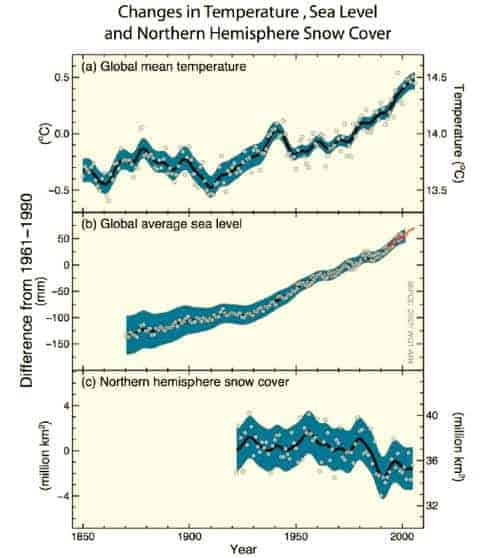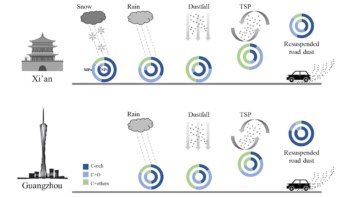The burning of fossil fuels and other human endeavours are causing global warming, says a major scientific report released today by the Intergovernmental Panel on Climate Change (IPCC). Written by about 600 climate experts, the UN-backed report also concluded that global warming is causing sea levels to rise and will bring drought and other extreme weather to many parts of the globe. The report, which is the IPCC's most forceful statement to date backing the scientific validity of manmade climate change, also warns that it may be too late to stop global warming by stabilizing greenhouse gas emissions.

There is little doubt that both global temperatures and sea levels have been rising steadily over the past 150 years as human activity increased the amounts of carbon dioxide and other greenhouse gases in the atmosphere. However, the complex nature of Earth’s climate had made it difficult for scientists to be sure that man is causing global warming. In 2001, the IPCC said that there was a 66-90% certainty that humans were mostly to blame for rising temperatures since about 1950, but improvements in both the science and underlying climate data have boosted this confidence to 90% in this latest report entitled Climate Change 2007: The Physical Science Basis.
The IPCC report predicts that global temperatures will rise by 1.8 -4.0°C between 1990 and 2100, depending on how much carbon dioxide and other greenhouse gases are released into the atmosphere. These predictions are a bit more conservative than the IPCC’s 2001 report, which predicted a 1.4-5.8°C increase. Sea levels are expected to rise by 28-43 cm during the same period – much more definite limits than the 9-88 cm forecast of the 2001 report. And even if greenhouse gas concentrations were to be stabilized during this century, temperatures and sea levels would continue to rise for many centuries to come thanks to the long timescales associated with many climate processes, the report says.
On a regional basis, today’s report says that warming is expected to be greatest over land and at most northern latitudes, with parts of Russia and Canada most greatly affected. This is expected to reduce snow cover and cause the melting of permafrost in the northern hemisphere. Arctic and Antarctic sea ice is projected to shrink, and by 2100, the Arctic Ocean is expected to be nearly ice-free in late summer.
There is a 90% certainty that extreme weather such as heat waves and heavy precipitation will become more frequent in some regions. Thanks to improvements in the scientific understanding of precipitation patterns, the report says that there is 90% certainty that warming will lead to greater precipitation in high latitudes and decreases in most sub-tropical regions. Indeed, 20% reductions in rainfall are predicted for the Mediterranean basin and southern Africa.
While there will never be a complete consensus on climate change, the report has been produced by about 600 scientists from 40 countries and was reviewed by 620 climate experts. The report was also reviewed, revised and accepted by representatives of 113 countries.
For further analysis and comment on climate change see this month’s issue of Physics World.



